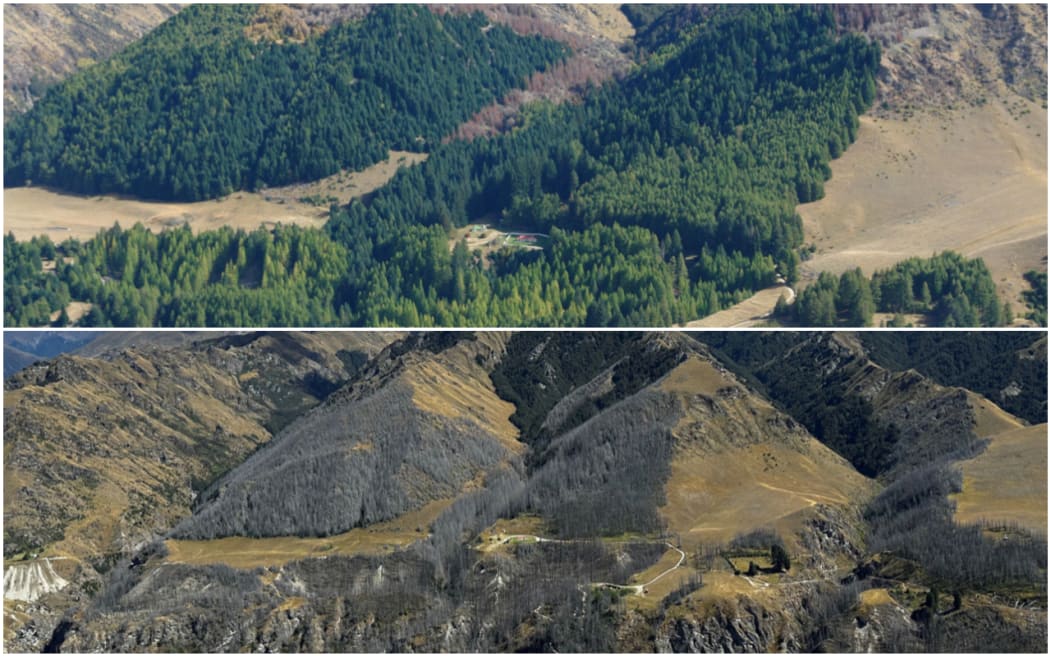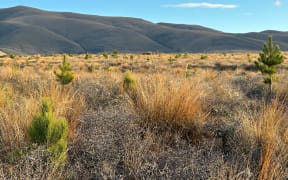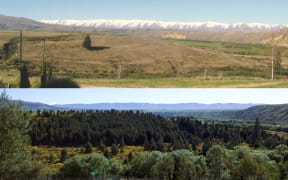
The photo above shows Skippers in 2010 and the photo below shows it now. Remnant native forest can be seen recovering in the valleys now that wildings have been removed. Photo: Supplied/Whakatipu Wilding Control Group
Efforts to remove wilding conifers from the Queenstown Lakes have hit a major milestone, shifting from management to maintenance only.
The Otago Regional Council said the new phase meant all known seeding trees had been removed from close to the 67,000 hectare Shotover management area.
Council chairperson Gretchen Robertson said they could not become complacent despite hitting the hard-won milestone, as the pest was fast spreading.
"Adequate funding is still needed to control seedling regrowth and to control wildings on neighbouring management areas so that wind-blown seed doesn't re-infest the Shotover management area."
It showed that landscape scale control was achievable, Robertson said.
The Shotover management area includes Mt Aurum, Skippers and Macetown areas, and has undergone 16 years of consistent effort involving multiple organisations and many volunteers.
First introduced near Skippers cemetery in 1880, the spread of wilding conifers became of increasing concern by the middle of the 20th century.
Whakatipu Wilding Control Group chairperson Grant Hensman said it was great to have something to celebrate.
"This success is due to the extensive, combined efforts of many over the years. No one organisation or person can claim the gold medal for this, but rather we need to mint a truck load of bronzes," he said.
They will undergo repeat visits each year to mop up wilding pines that spread into the area.
"This is not without threats to success, chief amongst them budget cuts by government," he said.
"Future generations should be grateful to the many people involved, but the irony is that when we do our job well, they won't know what they almost lost and will rightly take as normal un-infested, native flora and fauna, never realising the cost and effort that went into preserving it for them."



